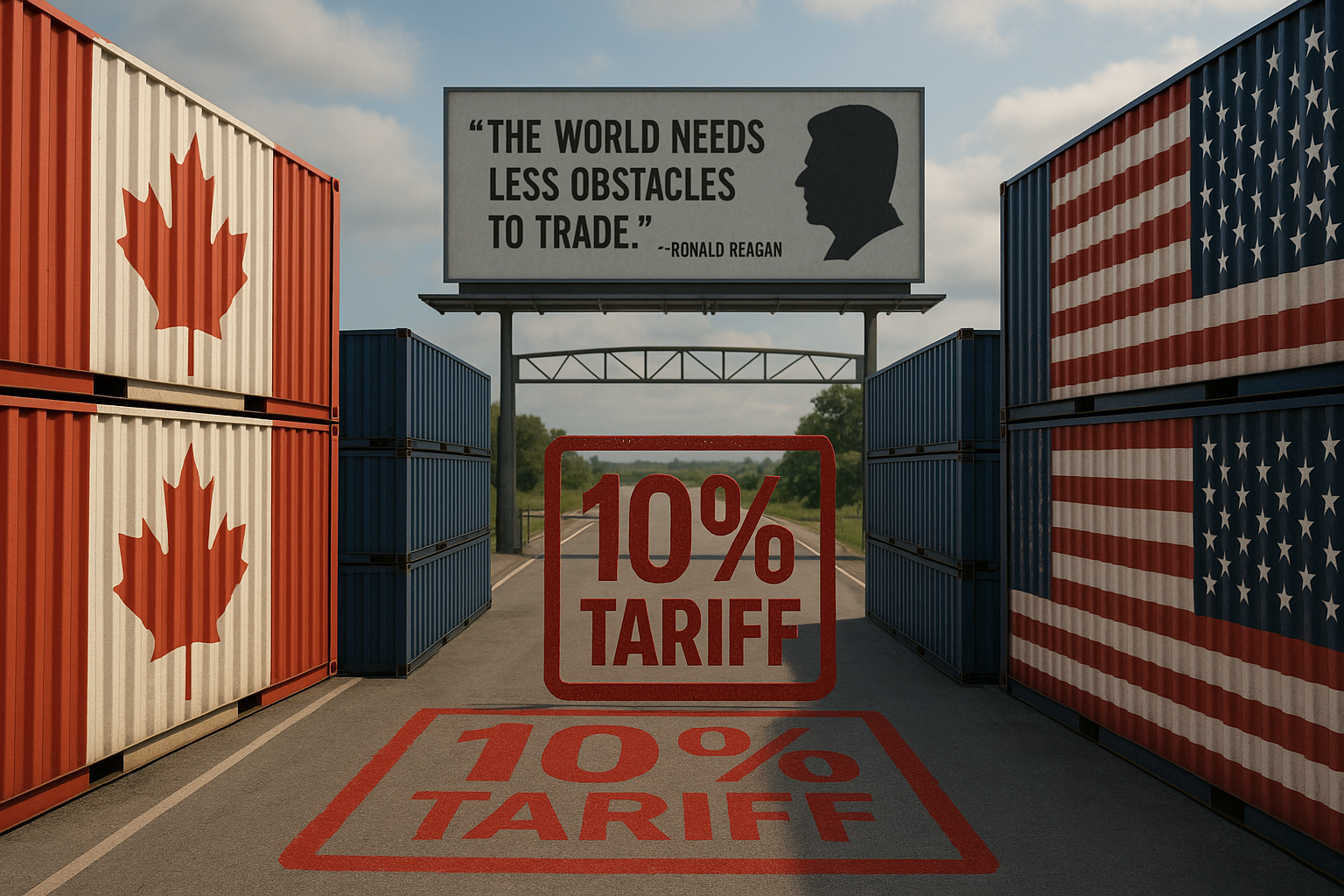Donald Trump just lobbed another grenade into the delicate machinery of international trade relations. The former president—and potential future occupant of the Oval Office—threatened a 10% tariff hike on Canadian imports, apparently triggered by... an Ontario government advertisement that quoted Ronald Reagan.
You read that right.
In what might be the strangest catalyst for trade tensions I've witnessed in two decades of economic reporting, Trump's ire was sparked by Canada daring to use the words of a Republican icon to advocate against protectionism.
"The irony is thick enough to spread on toast," remarked one trade analyst I spoke with yesterday, requesting anonymity to speak freely about the situation.
The advertisement featured Reagan's straightforward declaration that "The world needs less obstacles to trade, not more." Pretty uncontroversial stuff—or so you'd think. But it seems invoking the patron saint of modern Republicanism to make a case against tariffs was a bridge too far for the former president.
Look, trade disputes typically follow predictable patterns. There's posturing, negotiations, maybe some limited actions, then an eventual resolution that preserves most of the status quo. But this? This is like watching a neighbor threaten to burn down your garage because you quoted their favorite author in your book club.
The economic stakes aren't trivial. Canada isn't just any trading partner—it's America's second largest, with roughly $800 billion flowing back and forth annually across that long, mostly peaceful border. The two economies are so integrated that some manufactured products (cars especially) zigzag between countries multiple times during production.
Having covered U.S.-Canada relations since the original NAFTA days, I can tell you this relationship has weathered storms before. But there's something uniquely destabilizing about policy-by-social-media-announcement.
The markets, interestingly, barely flinched. The Canadian dollar dipped slightly before recovering, suggesting traders have developed what economists might call a "Trump tweet discount"—the automatic mental adjustment applied to presidential pronouncements that may never materialize into policy.
"We've seen this movie before," said Jennifer Blackwood, a trade policy specialist I caught up with by phone. "During his first administration, Trump imposed steel and aluminum tariffs on Canada, cited national security concerns of all things, then eventually removed them after negotiations. The economic disruption was real, but temporary."
What's particularly baffling about this latest threat? The U.S. actually maintains a trade surplus with Canada when services are included in the calculation. If trade deficits are Trump's boogeyman (they shouldn't be, but that's a whole other article), Canada isn't the problem.
So what gives?
Perhaps it's simply personal pique. The Ontario government committed the cardinal sin of using Trump's political hero against his own policy positions. It's a bit like quoting someone's mother to criticize their behavior—effective, but guaranteed to provoke an outsized reaction.
For businesses caught in this crossfire (again), the challenge is pricing political risk into their operations. Do you upend supply chains based on social media threats? Do you wait it out? One CEO I spoke with last year after similar threats told me his company had created what he called "disruption scenarios" for key political risks—with Trump tariffs prominently featured.
"We can't plan based on tweets," he said, "but we can't ignore them either."
The whole episode reveals something deeper about our current moment. Reagan, once the north star of Republican economic thinking, advocated for free trade and market openness. Now his words are weaponized in international disputes by his own political heirs—against the very principles he championed.
I remember interviewing a Reagan economic advisor back in 2018 during the first round of Trump tariffs. He sat in his office, surrounded by Reagan memorabilia, and sighed deeply before saying, "This isn't what we stood for."
For now, Canadian officials are keeping their powder dry, making measured statements about the importance of bilateral trade. They've been through this drill before.
Meanwhile, businesses on both sides of the border will do what they always do—try to plan amid uncertainty, adjust as necessary, and hope that cooler heads eventually prevail.
And as for that Reagan quote? It remains as true today as when he first said it... even if some would rather not be reminded.
